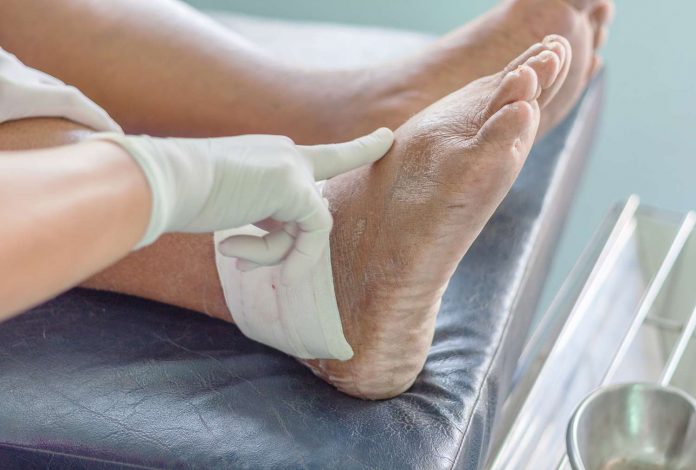Gout can be treated and managed with medications and healthy lifestyle habits. Your doctor or nutritionist can help you develop the best treatment strategy for you.
Gout is a general term for a variety of conditions caused by a buildup of uric acid. This buildup usually affects the feet.
If you have gout, you’ll probably feel swelling and pain in the joints of your foot, particularly your big toe. Sudden and intense pain, or gout attacks, can make it feel like your foot is on fire.
Symptoms of gout
Some people have too much uric acid in their blood but no symptoms. This is called asymptomatic hyperuricemia.
For acute gout, symptoms come on quickly from the buildup of uric acid crystals in your joint and last for 3 to 10 days.
You’ll have intense pain and swelling, and your joint may feel warm. Between gout attacks, you won’t have any symptoms.
If you don’t treat gout, it can become chronic. Hard lumps called tophi can eventually develop in your joints and the skin and soft tissue surrounding them. These deposits can permanently damage your joints.
Prompt treatment is important to prevent gout from turning chronic
Gout home remedies
Some home remedies may help lower uric acid levels and prevent gout attacks. The following foods and drinks have been suggested for gout:
tart cherries
magnesium
ginger
diluted apple cider vinegar
celery
nettle tea
dandelion
milk thistle seeds
But these alone may not be enough to manage gout.
Treatment of gout
If left untreated, gout can eventually lead to gouty arthritis, which is a more severe form of arthritis. This painful condition can leave your joint permanently damaged and swollen.
The treatment plan your doctor recommends will depend on the stage and severity of your gout.
Medications to treat gout work in one of two ways: They relieve pain and bring down inflammation, or they prevent future gout attacks by lowering uric acid levels.
Drugs to relieve gout pain include:
nonsteroidal anti-inflammatory drugs (NSAIDs), such as aspirin (Bufferin), ibuprofen (Advil, Motrin), and naproxen (Aleve)
colchicine (Colcrys, Mitigare)
corticosteroids
Drugs that prevent gout attacks include:
xanthine oxidase inhibitors, such as allopurinol (Lopurin, Zyloprim) and febuxostat (Uloric)
probenecid (Probalan)
Along with medications, your doctor may recommend lifestyle changes to help manage your symptoms and reduce your risk of future gout attacks. For example, your doctor may encourage you to:
reduce your alcohol intake, if you drink
lose weight, if you’re overweight
quit smoking, if you smoke
In addition a few complementary therapies have also shown promise.
Gout surgery
Gout can typically be treated without surgery. But after many years, this condition can damage the joints, tear the tendons, and cause infections in the skin over the joints.
Hard deposits, called tophi, can build up on your joints and in other places, like your ear. These lumps may be painful and swollen, and they can permanently damage your joints.
Three surgical procedures treat tophi:
tophi removal surgery
joint fusion surgery
joint replacement surgery
Which one of these surgeries your doctor recommends depends on the extent of the damage, where the tophi are located, and your personal preferences.
Causes of gouty
The buildup of uric acid in your blood from the breakdown of purines causes gout.
Certain conditions, such as blood and metabolism disorders or dehydration, make your body produce too much uric acid.
A kidney or thyroid problem, or an inherited disorder, can make it harder for your body to remove excess uric acid
You’re more likely to get gout if you:
are a middle-aged man or postmenopausal woman
have parents, siblings, or other family members with gout
drink alcohol
take medications such as diuretics and cyclosporine
have a condition like high blood pressure, kidney disease, thyroid disease, diabetes, or sleep apnea
For some people, gout is caused by consuming foods that are high in gout-producing purines.
Foods to avoid
Certain foods are naturally high in purines, which your body breaks down into uric acid.
Most people can tolerate high-purine foods. But if your body has trouble releasing excess uric acid, you may want to avoid certain foods and drinks, such as:
red meats
organ meats
certain seafood
alcohol
Sugar-sweetened beverages and foods containing the sugar fructose can also be problematic, even though they don’t contain purines.
Some foods help reduce uric acid levels in the body and are good choices if you have gout.
Gout and alcohol
Alcohol, like red meat and seafood, is high in purines. When your body breaks down purines, the process releases uric acid.
More uric acid increases your risk of having gout. Alcohol can also reduce the rate at which your body removes uric acid.
Not everyone who drinks will develop gout. But a high consumption of alcohol (more than 12 drinks per week) can increase the risk — especially in men. Beer is more likely than liquor to influence the risk.
In surveys, people have reported that drinking alcohol triggers their gout flare-ups.
Gout diagnosis
Your doctor can diagnose gout based on a review of your medical history, a physical exam, and your symptoms. Your doctor will likely base your diagnosis on:
your description of your joint pain
how often you’ve experienced intense pain in your joint
how red or swollen the area is
Your doctor may also order a test to check for a buildup of uric acid in your joint. A sample of fluid taken from your joint can show whether it contains uric acid. They may also want to take an X-ray of your joint.
If you have symptoms of gout, you can start with a visit to your primary care doctor. If your gout is severe, you may need to see a specialist in joint diseases.






























